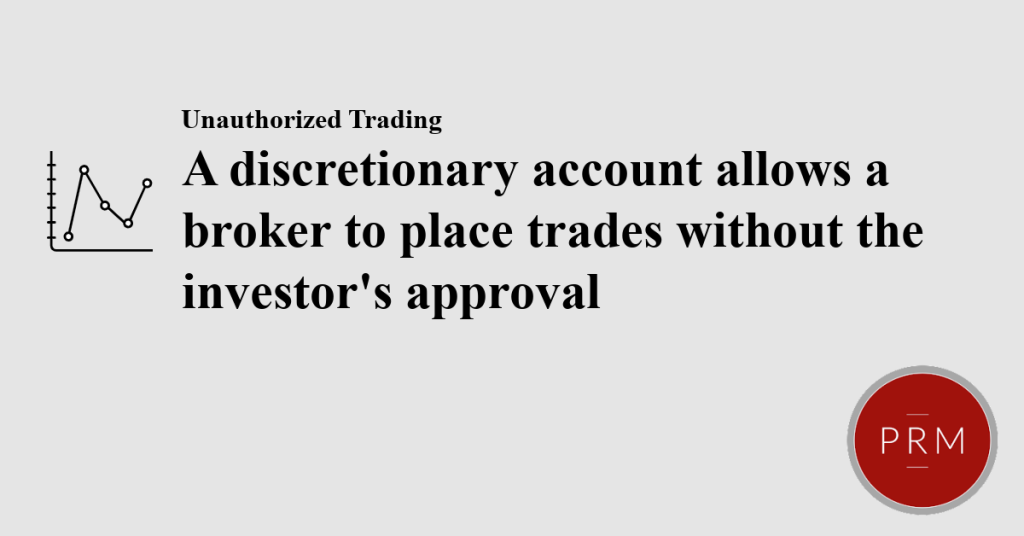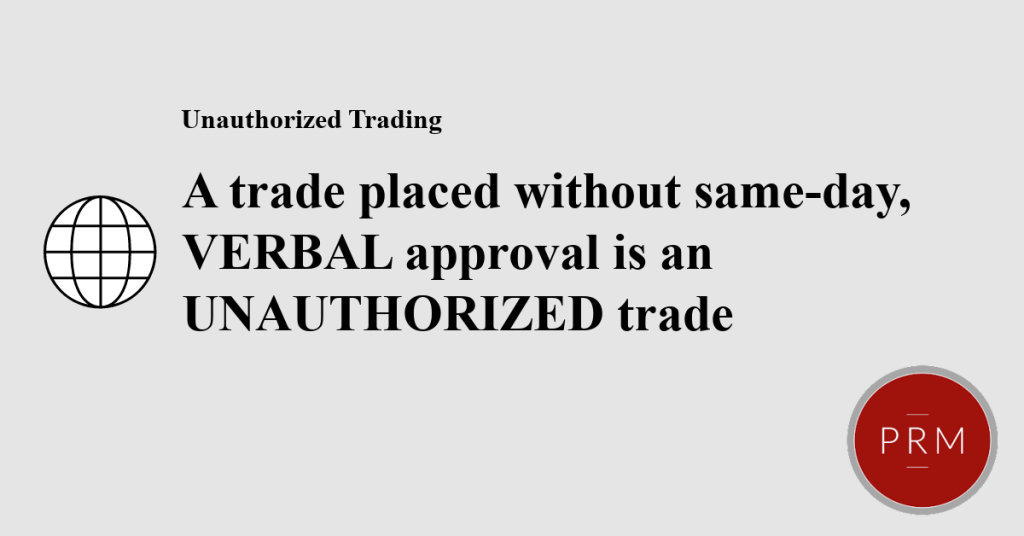Unauthorized Trading
Overview
The difference between discretionary accounts and non-discretionary accounts

A discretionary account is one that gives the broker “discretion” to make securities transactions in a brokerage account without the investor’s approval. Discretionary accounts require extensive written authorization from customer permitting a broker to use discretion. Additionally, the broker-dealer (the broker’s employ) must also approve the broker’s use of discretion, and properly mark the account eligible for discretionary trading as part of its duty to supervise.

Non-discretionary accounts on the other hand, require same-day verbal approval from the customer before the broker can place any recommended trade. That typically means, the broker must call the customer on the same day that he intends to place the recommended trade, receive verbal approval from the customer, and then place the trade the same day he receives approval.
Written approval of a trade in a non-discretionary account is insufficient.
The trade must be placed on the same day as the verbal approval.
Why does same day, verbal approval matter?l.

How might unauthorized trading impact how a financial advisor gets paid?
*The Law Offices of Patrick R. Mahoney is a full service law firm with extensive experience litigating cases involving a host of securities-related issues. This page is for information purposes only and does not constitute legal or investment advice; nor is it a comprehensive explanation of all unauthorized trading issues. If you believe you have a claim, you should speak to competent counsel to better understand your options. Or, contact us.*
- The investor’s risk tolerance.
- The investors investment objective.
- The investor’s time horizon.
- Any other factors that might impact a client’s investment decisions.
Step 3

Example 1- Quantitative Suitability Issues Stemming from Churning or Excessive Trading.
Example 2-Quantitative Suitability Issues Stemming from Improper Asset Allocation.
*The Law Offices of Patrick R. Mahoney is a full service law firm with extensive experience litigating cases involving a host of securities-related issues. This page is for information purposes only and does not constitute investment or legal advice, nor is it a comprehensive explanation of all unsuitability issues. If you believe you have a claim, you should speak to competent counsel to better understand your options. Or, contact us.*
